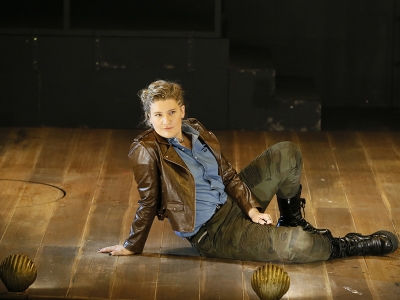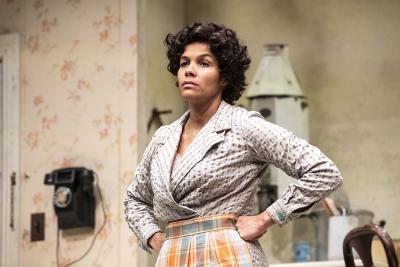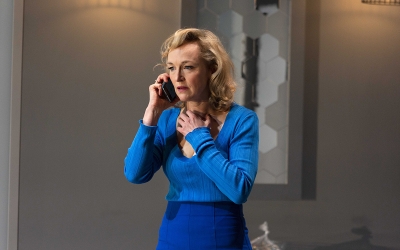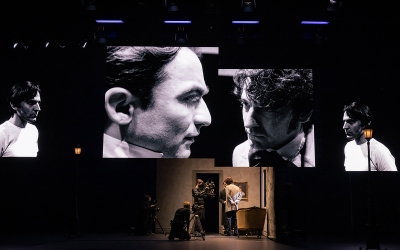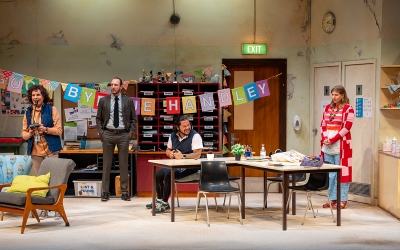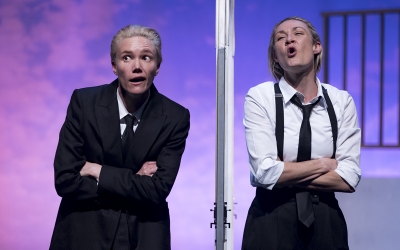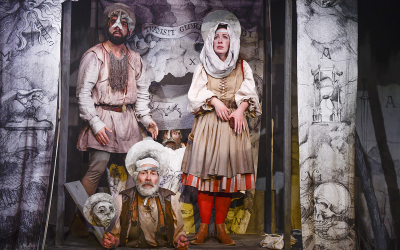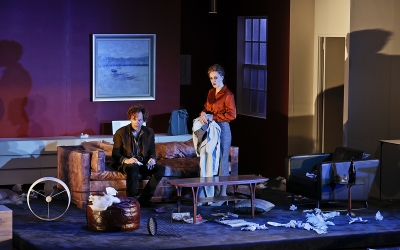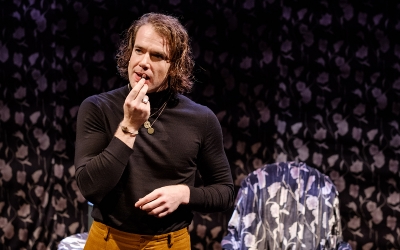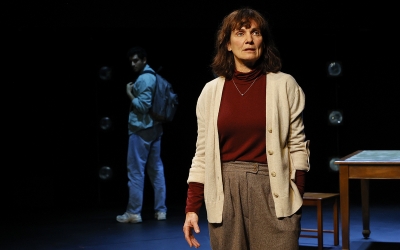Theatre
In Italian playwright Luigi Pirandello’s Six Characters in Search of an Author (1921), a handful of people enter a stage during a rehearsal and begin to break down the very structures of theatre itself. They question not just the verisimilitude of acting but the essentialism of character, the idea that we are ever any one thing fixed in time. It is a concept that animates Virginia Gay’s free adaptation of Edmond Rostand’s Cyrano de Bergerac (1897): this is a tragic hero who pushes at the confines of their assigned role, daring to imagine not just an alternate ending but an entirely new way of being Cyrano.
... (read more)In the annals of theatre history, Lorraine Hansberry’s A Raisin in the Sun (which had its première in 1959, when she was only twenty-eight) will go down as the first Broadway play written by an African-American woman and directed by an African-American man. It would have been beaten a couple of seasons earlier by Alice Childress’s Trouble in Mind if the redoubtable Childress had not refused to allow her would-be producers water down her work, which portrayed the demeaning and frustrating position of Black actors forced into endless ‘yes’m, no sir’ shuck and jive roles.
... (read more)Australian playwright Suzie Miller, a mainstay of independent stages both in Australia and overseas, is having something of a breakthrough year. Two of Miller’s play are having their mainstage premières – Anna K and RBG, Miller’s ode to American jurist Ruth Bader Ginsberg (Sydney Theatre Company, October–December) – and her Griffin-award-winning play Prima Facie (2019) has been a sell-out smash in London’s West End and broadcast around the world as part of the prestigious NT Live initiative of Britain’s National Theatre.
... (read more)This month Sydney is host to two productions inspired by Robert Louis Stevenson’s novella Strange Case of Dr Jekyll and Mr Hyde (1888). The first, from Sydney Theatre Company, signals director Kip Williams’s return to the Roslyn Packer Theatre following the success of his 2019 production, The Picture of Dorian Gray. The second, from director Hayden Tee, offers a subversive revival of the much-maligned 1990 ‘gothic thriller musical’ Jekyll and Hyde by Frank Wildhorn and Leslie Bricusse at Hayes Theatre Co. ‘Man is not one but two’, Stevenson famously writes ...
... (read more)Every other day there seems to be a news story about the largesse with which public money is dispensed to private schools while the public education system falls further into disrepair and dysfunction. As reported in February 2022 by the Guardian, recent analysis by Save Our Schools shows that between 2009 and 2020 government funding for independent schools increased by $3,338 a student compared with just $703 more per student for public schools.
... (read more)One thing is certain: Shakespeare’s The Comedy of Errors is flat out hilarious, and if it isn’t funny enough on stage, it’s the fault of the production. His only farce, it is often thought to be an early work, but it is surely far too assured to be written before 1594. It’s entirely free of the striving Marlovian rhetoric that hampers the Henry VI plays (commenced in 1591), and it is cleaner, cleverer, and more convincing than The Taming of the Shrew (probably before 1592). It is based on Plautus’s Menaechmi ...
... (read more)It opens outside the tiny wooden box that is Red Stitch’s St Kilda home; the actors come towards us with torches blazing, in medieval masks. What follows is a brief pageant, a morality play that breaks down when one of the players falls victim to a mysterious pestilence – although it’s clear from the catch in the other actors’ voices that this contagion is not entirely unexpected. The actor drops, and his sister must be wrenched from his fallen body before she too succumbs. The plague is about, and all anyone can do is run.
... (read more)English Nobel Laureate Kazuo Ishiguro has had several works translated into film – notably The Remains of the Day (1993) and Never Let Me Go (2010) – but Melbourne Theatre Company’s Come Rain or Come Shine is the first stage musical based on his work. One of five short stories on the theme of music and nightfall that make up the collection Nocturnes (2009), it’s an odd little tale of friendship and failure that careens from the gently elegiac to the outright farcical, like F. Scott Fitzgerald via Michael Frayn.
... (read more)Early on in Jonny Hawkins’s Maureen: Harbinger of Death, Maureen invites an audience member to light her cigarette. The man she chooses, like most audience participants, hesitates. She beckons him with a wry smile. As he wanders on stage, she immediately notices his bare face. She presents him with a mask – coordinated perfectly to the colour of her room and attire – and remarks: ‘He has a chin that could have sunk the Titanic.’
... (read more)On paper, American playwright Adam Rapp’s The Sound Inside is an intriguing piece of writing. Bella Baird, a professor of creative writing at Yale University, ‘emerges from the darkness’ onto a nondescript stage and introduces herself. She speaks in the ‘heavily embroidered, figurative’ sentences that she dissuades her students from using, a liberty she allows herself standing here, alone in a park, ‘[talking] things out’.
... (read more)
